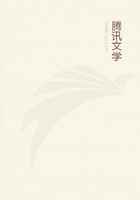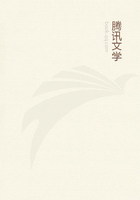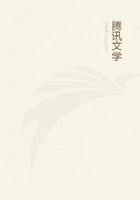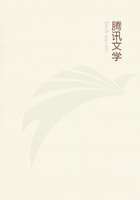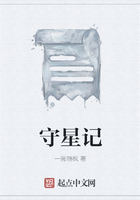By these limits, accordingly, Bentham's knowledge of human nature is bounded. It is wholly empirical; and the empiricism of one who has had little experience. He had neither internal experience nor external; the quiet, even tenor of his life, and his healthiness of mind, conspired to exclude him from both. He never knew prosperity and adversity, passion nor satiety. he never had even the experiences which sickness gives; he lived from childhood to the age of eighty-five in boyish health. He knew no dejection, no heaviness of heart. He never felt life a sore and a weary burthen. He was a boy to the last.
Self-consciousness, that daemon of the men of genius of our time, from Wordsworth to Byron, from Goethe to Chateaubriand, and to which this age owes so much both of its cheerful and its mournful wisdom, never was awakened in him. How much of human nature slumbered in him he knew not, neither can we know. He had never been made alive to the unseen influences which were acting on himself, nor consequently on his fellow-creatures. Other ages and other nations were a blank to him for purposes of instruction. He measured them but by one standard; their knowledge of facts, and their capability to take correct views of utility, and merge all other objects in it. His own lot was cast in a generation of the leanest and barrenest men whom England had yet produced, and he was an old man when a better race came in with the present century. He saw accordingly in man little but what the vulgarest eye can see; recognized no diversities of character but such as he who runs may read. Knowing so little of human feelings, he knew still less of the influences by which those feelings are formed: all the more subtle workings both of the mind upon itself, and of external things upon the mind, escaped him; and no one, probably, who, in a highly instructed age, ever attempted to give a rule to all human conduct, set out with a more limited conception either of the agencies by which human conduct is, or of those by which it should be, influenced.
This, then, is our idea of Bentham. He was a man both of remarkable endowments for philosophy, and of remarkable deficiencies for it: fitted, beyond almost any man, for drawing from his premises, conclusions not only correct, but sufficiently precise and specific to be practical: but whose general conception of human nature and life furnished him with an unusually slender stock of premises. It is obvious what would be likely to be achieved by such a man; what a thinker, thus gifted and thus disqualified, could do in philosophy. He could, with close and accurate logic, hunt half-truths to their consequences and practical applications, on a scale both of greatness and of minuteness not previously exemplified; and this is the character which posterity will probably assign to Bentham.
We express our sincere and well-considered conviction when we say, that there is hardly anything positive in Bentham's philosophy which is not true: that when his practical conclusions are erroneous, which in our opinion they are very often, it is not because the considerations which he urges are not rational and valid in themselves, but because some more important principle, which he did not perceive, supersedes those considerations, and turns the scale. The bad part of his writings is his resolute denial of all that he does not see, of all truths but those which he recognizes. By that alone has he exercised any bad influence upon his age; by that he has, not created a school of deniers, for this is an ignorant prejudice, but put himself at the head of the school which exists always, though it does not always find a great man to give it the sanction of philosophy.
thrown the mantle of intellect over the natural tendency of men in all ages to deny or disparage all feelings and mental states of which they have no consciousness in themselves.
The truths which are not Bentham's, which his philosophy takes no account of, are many and important; but his non-recognition of them does not put them out of existence; they are still with us, and it is a comparatively easy task that is reserved for us, to harmonize those truths with his. To reject his half of the truth because he overlooked the other half, would be to fall into his error without having his excuse. For our own part, we have a large tolerance for one-eyed men, provided their one eye is a penetrating one: if they saw more, they probably would not see so keenly, nor so eagerly pursue one course of inquiry. Almost all rich veins of original and striking speculation have been opened by systematic half-thinkers: though whether these new thoughts drive out others as good, or are peacefully superadded to them, depends on whether these half-thinkers are or are not followed in the same track by complete thinkers. The field of man's nature and life cannot be too much worked, or in too many directions; until every clod is turned up the work is imperfect; no whole truth is possible but by combining the points of view of all the fractional truths, nor, therefore, until it has been fully seen what each fractional truth can do by itself.
What Bentham's fractional truths could do, there is no such good means of showing as by a review of his philosophy: and such a review, though inevitably a most brief and general one, it is now necessary to attempt.
The first question in regard to any man of speculation is, what is his theory of human life? In the minds of many philosophers, whatever theory they have of this sort is latent, and it would be a revelation to themselves to have it pointed out to them in their writings as others can see it, unconsciously moulding everything to its own likeness. But Bentham always knew his own premises, and made his reader know them: it was not his custom to leave the theoretic grounds of his practical conclusions to conjecture. Few great thinkers have afforded the means of assigning with so much certainty the exact conception which they had formed of man and of man's life.

